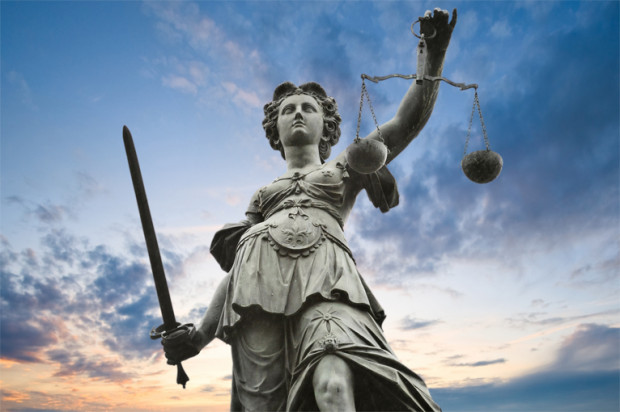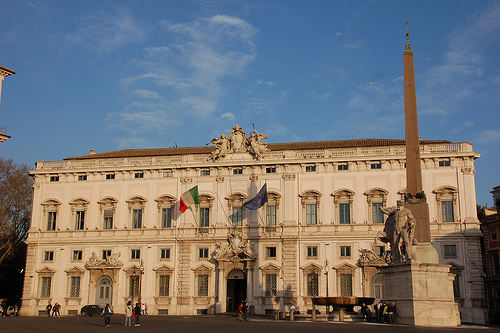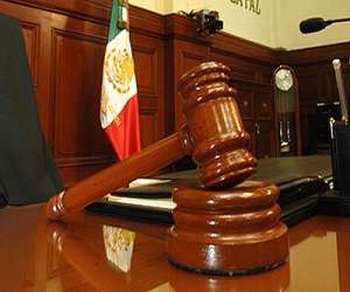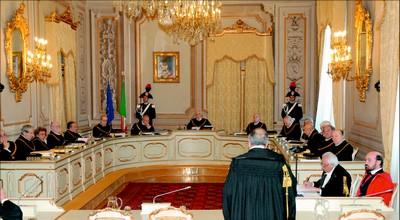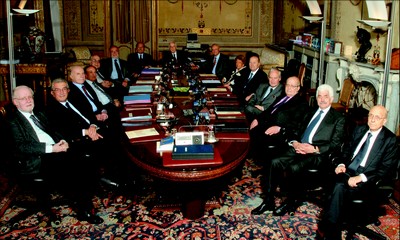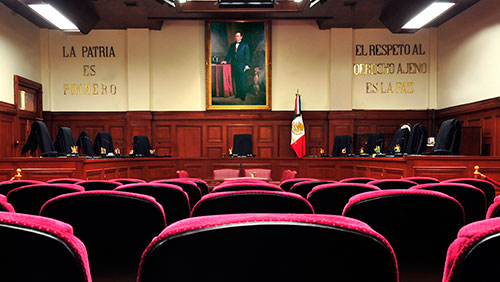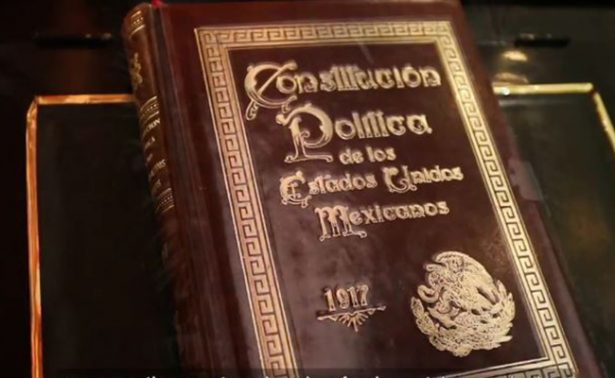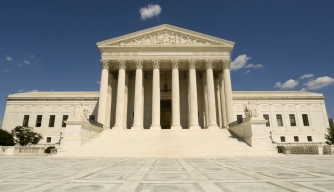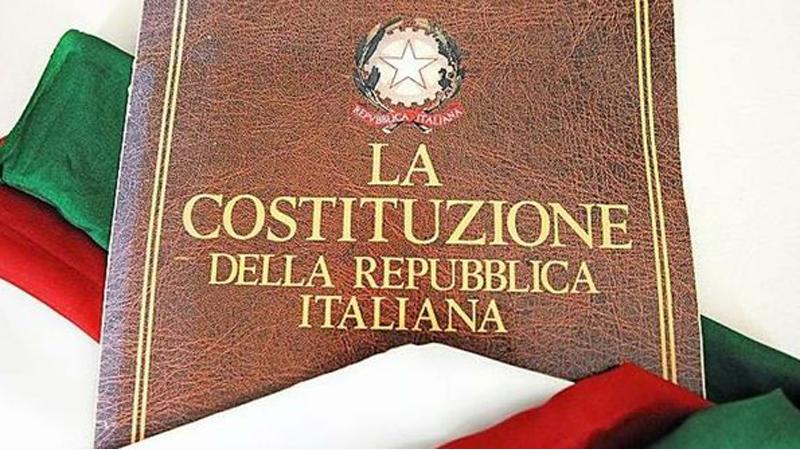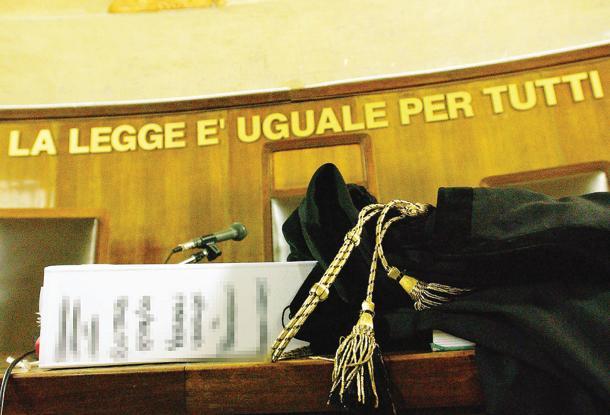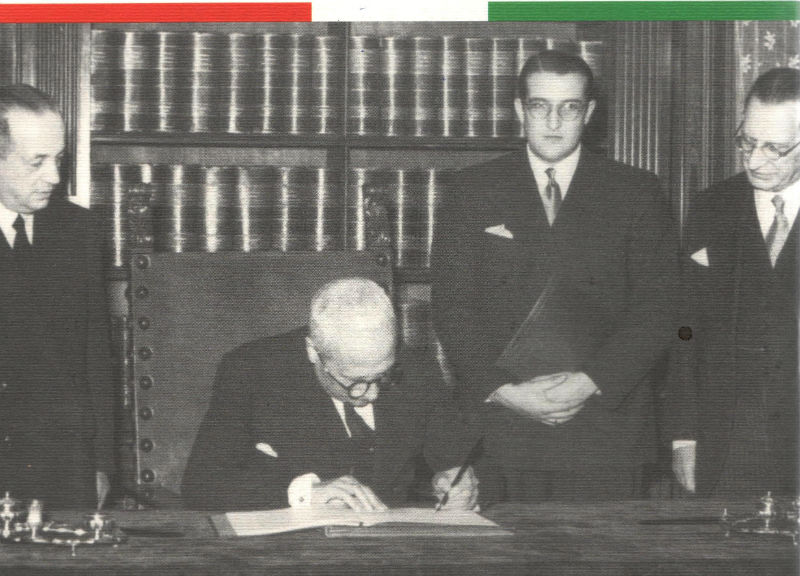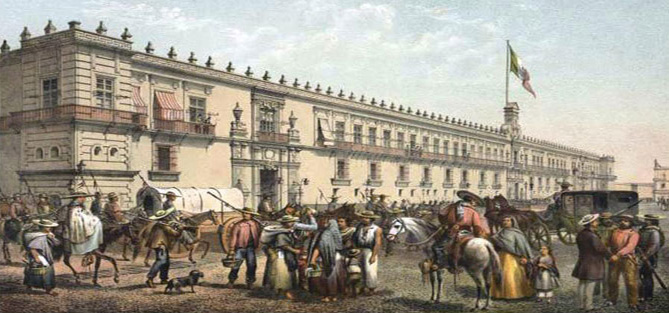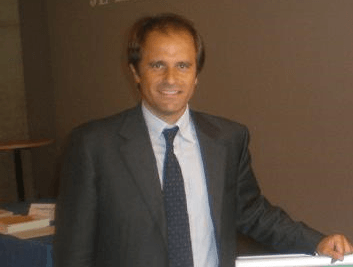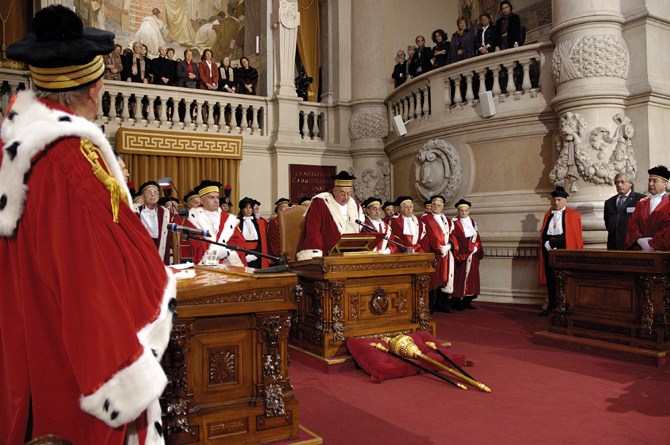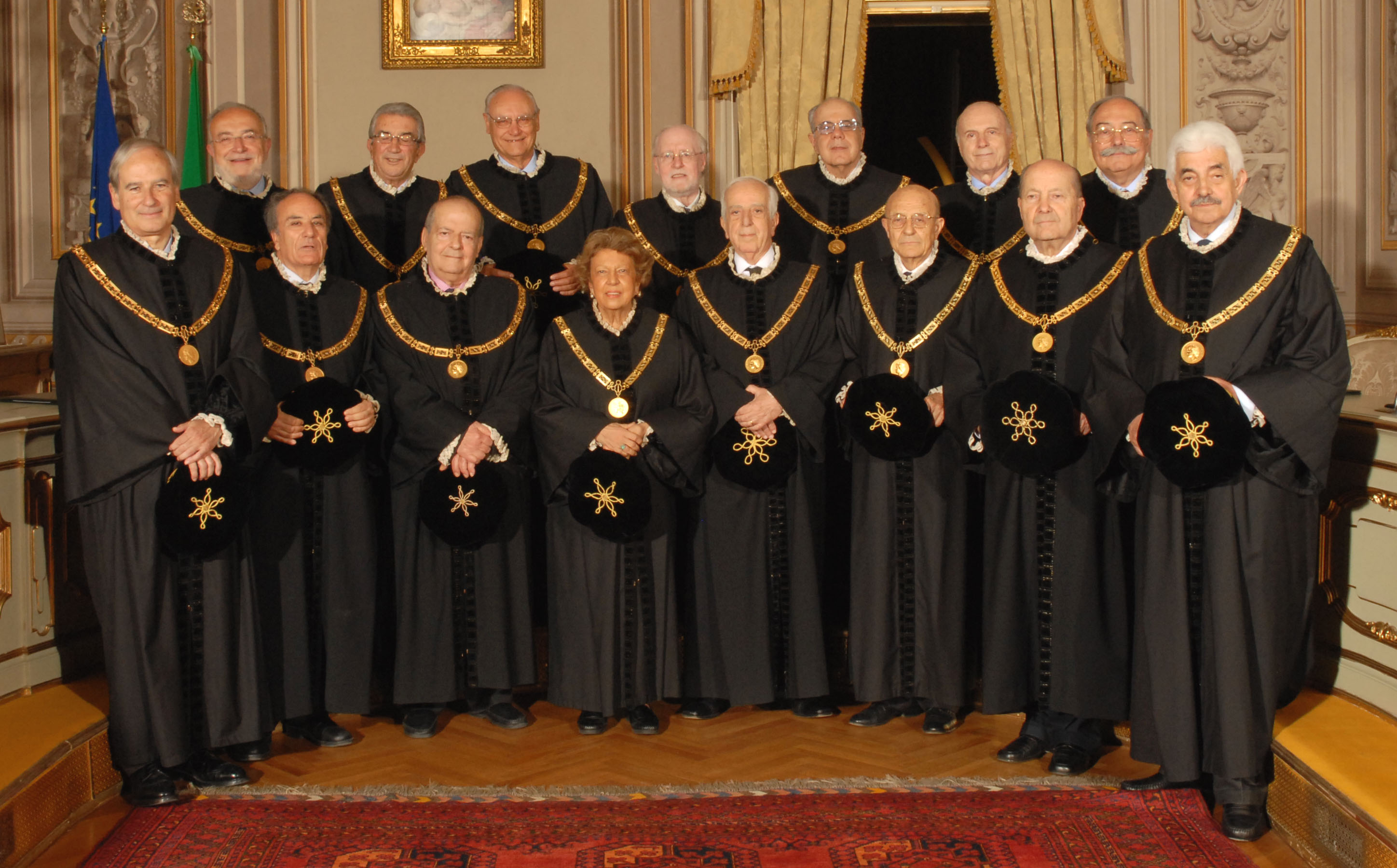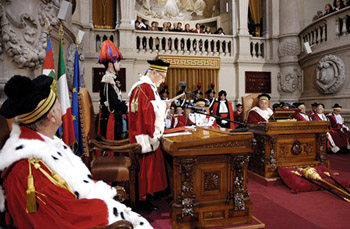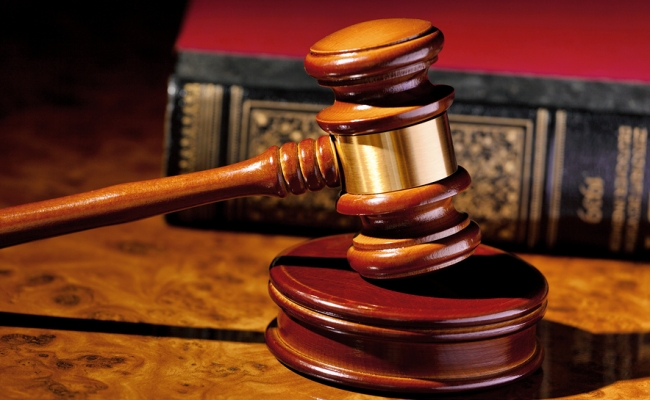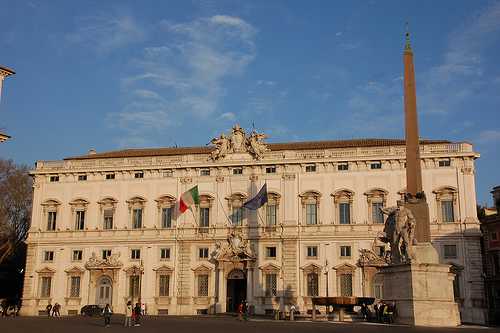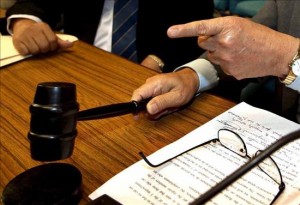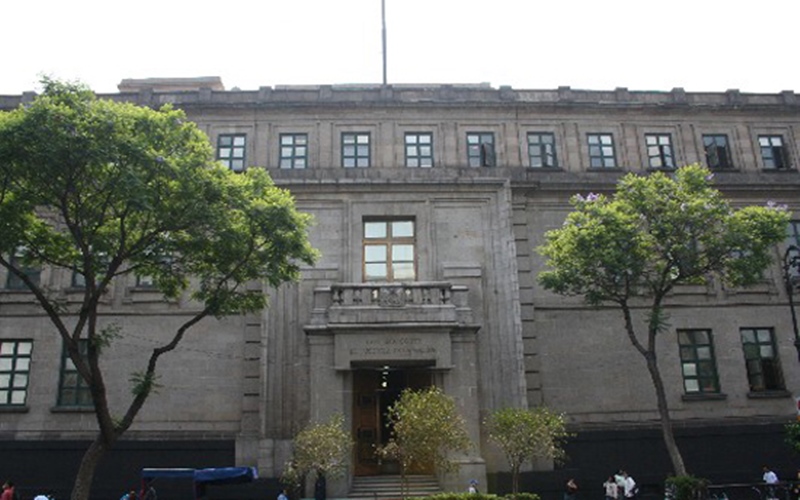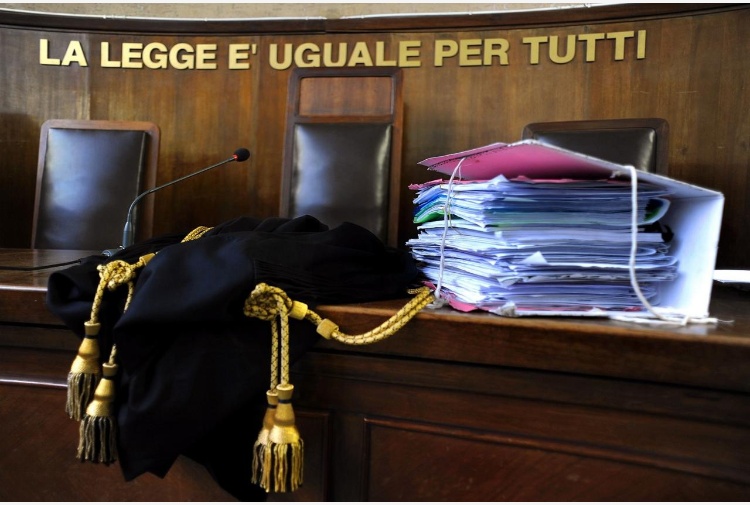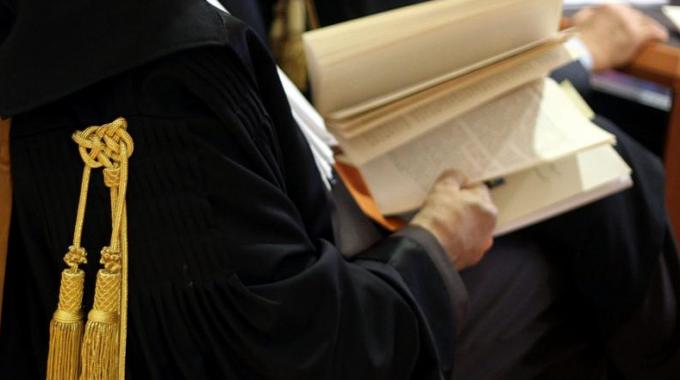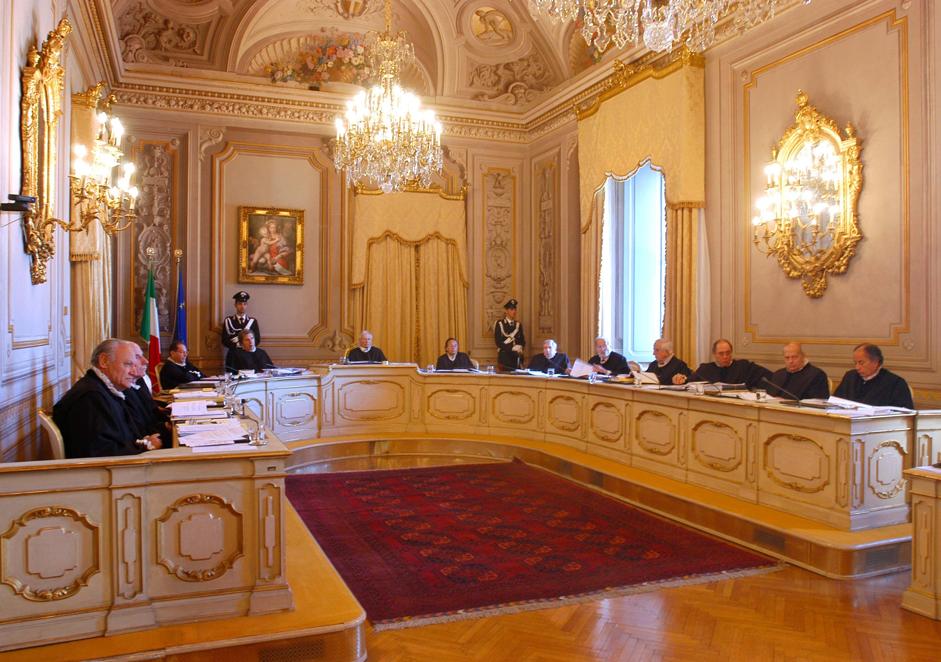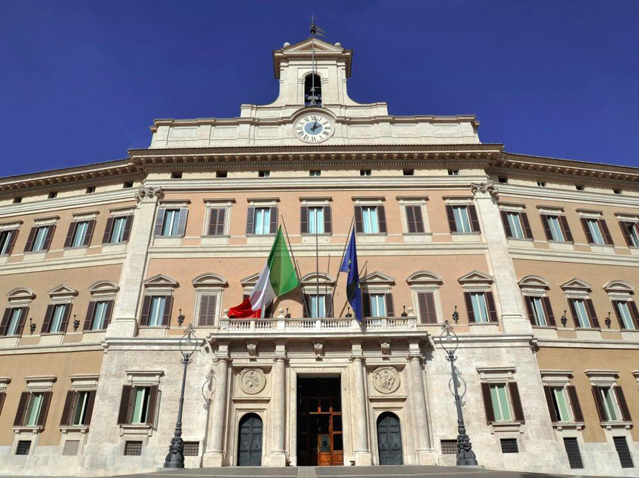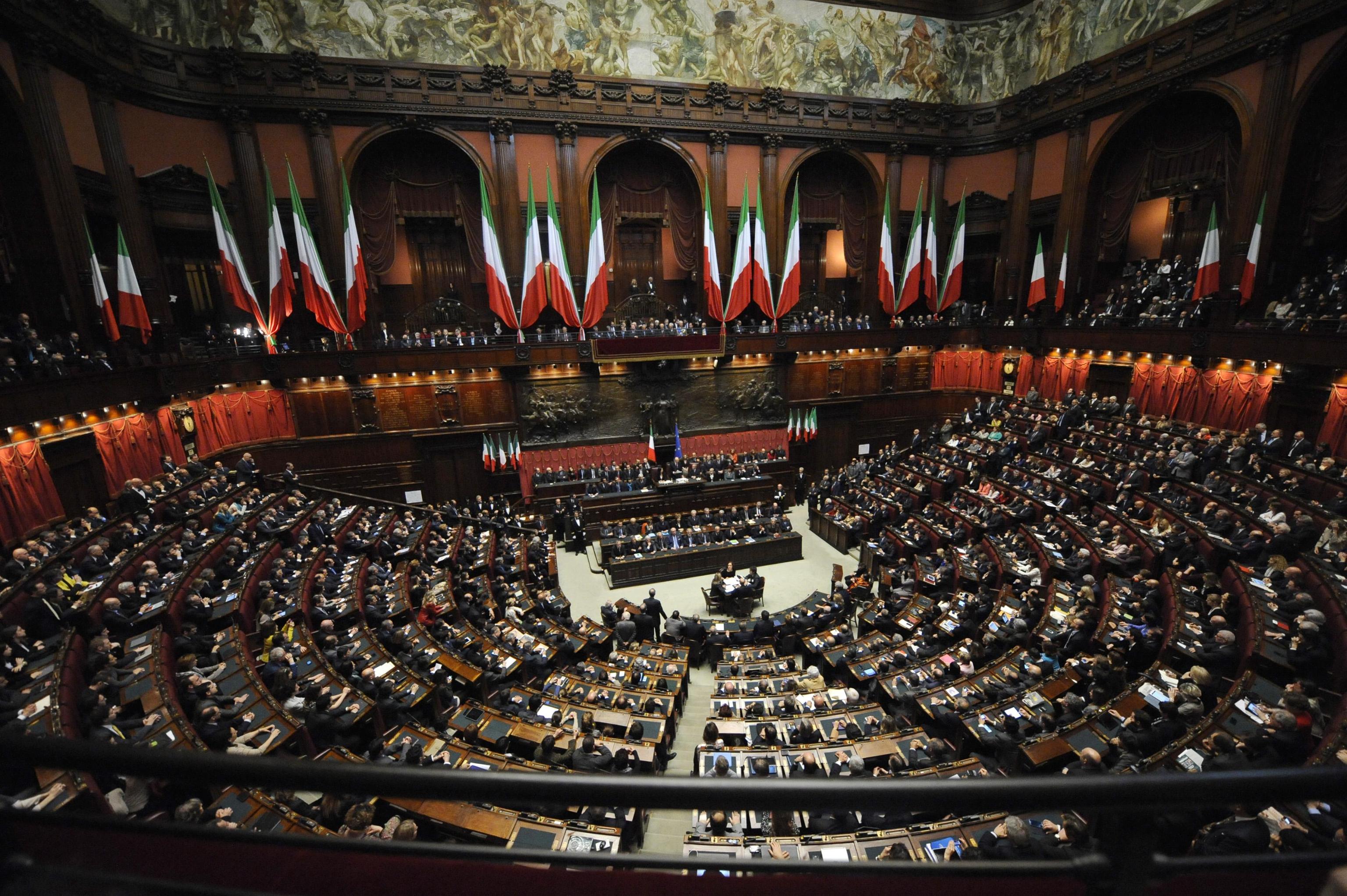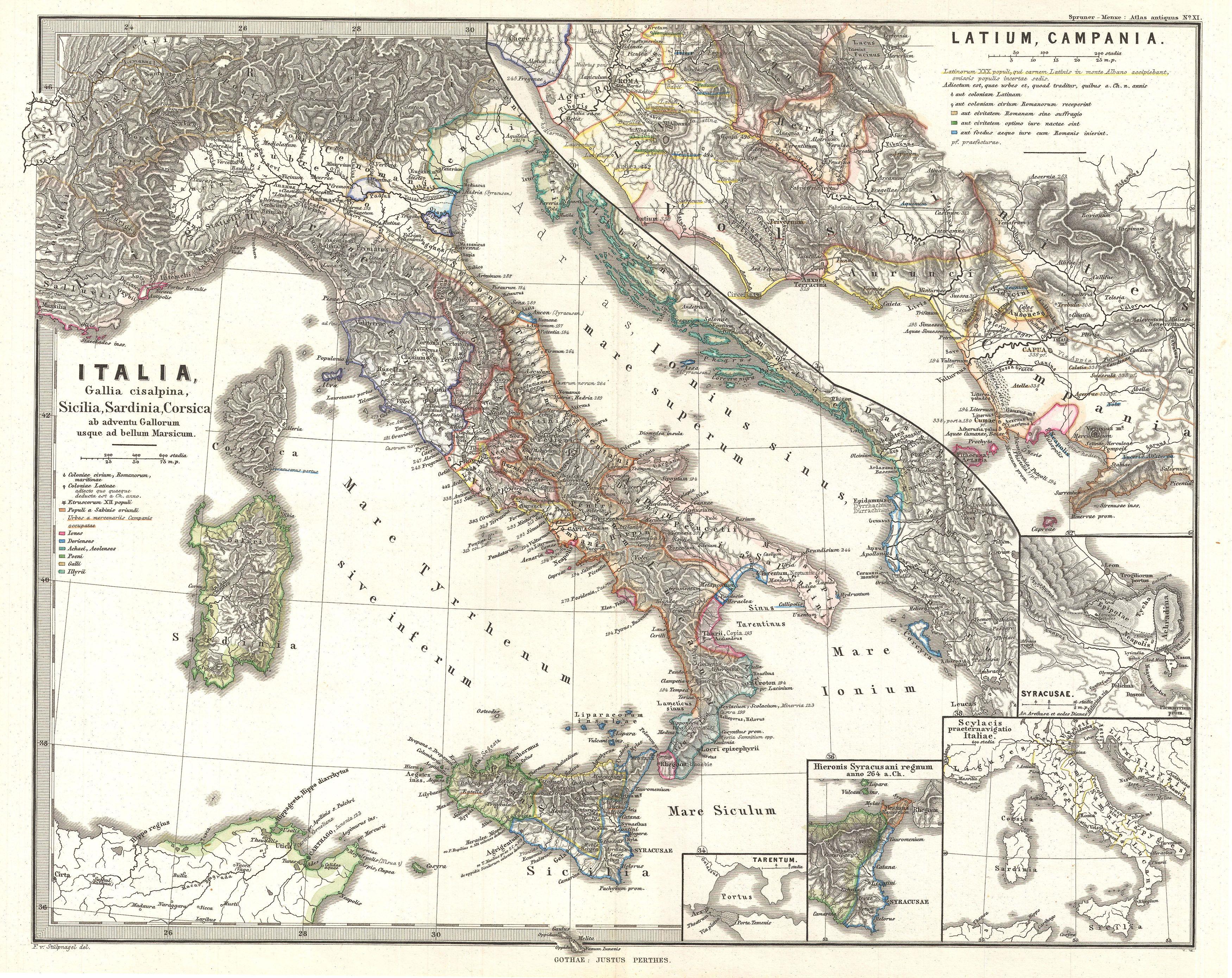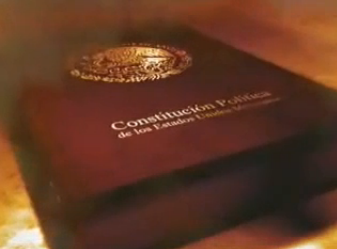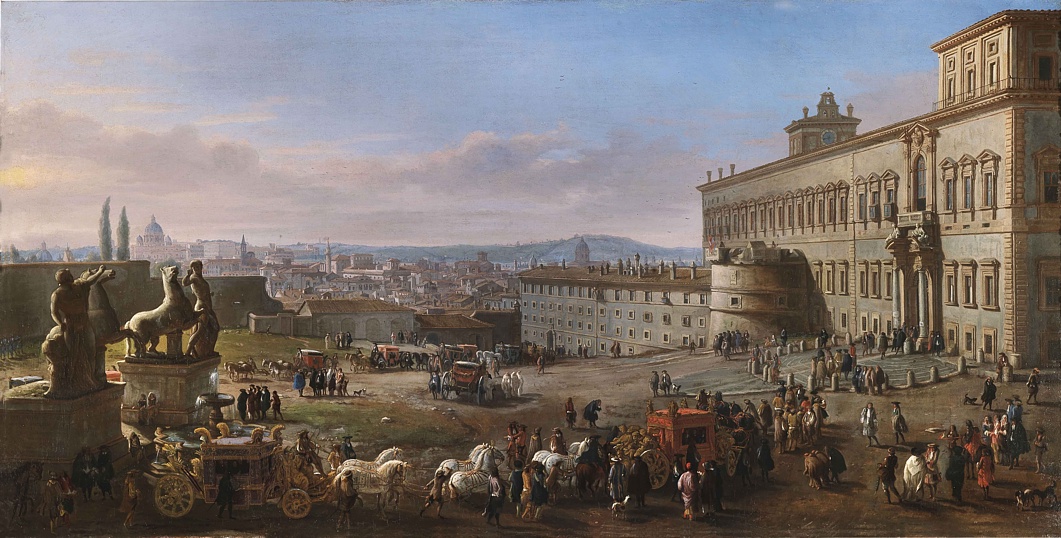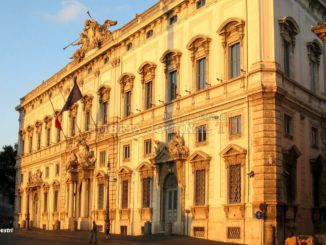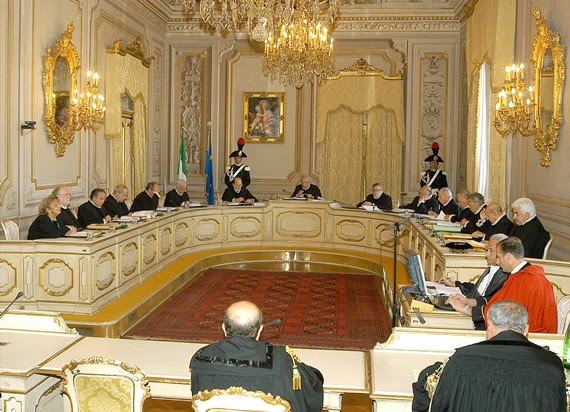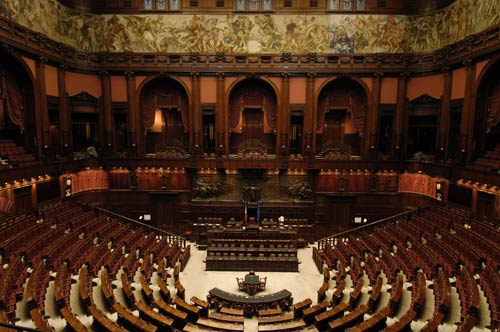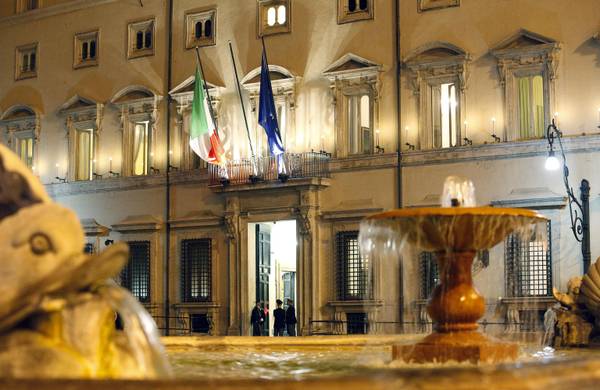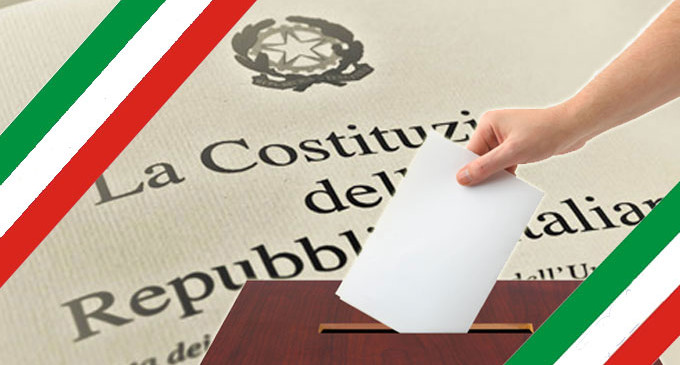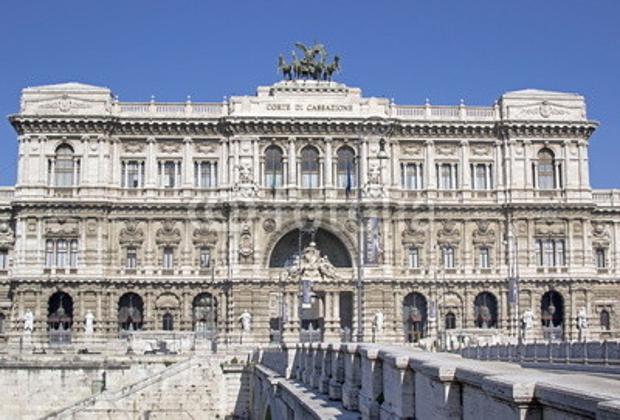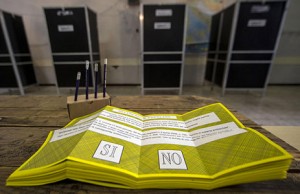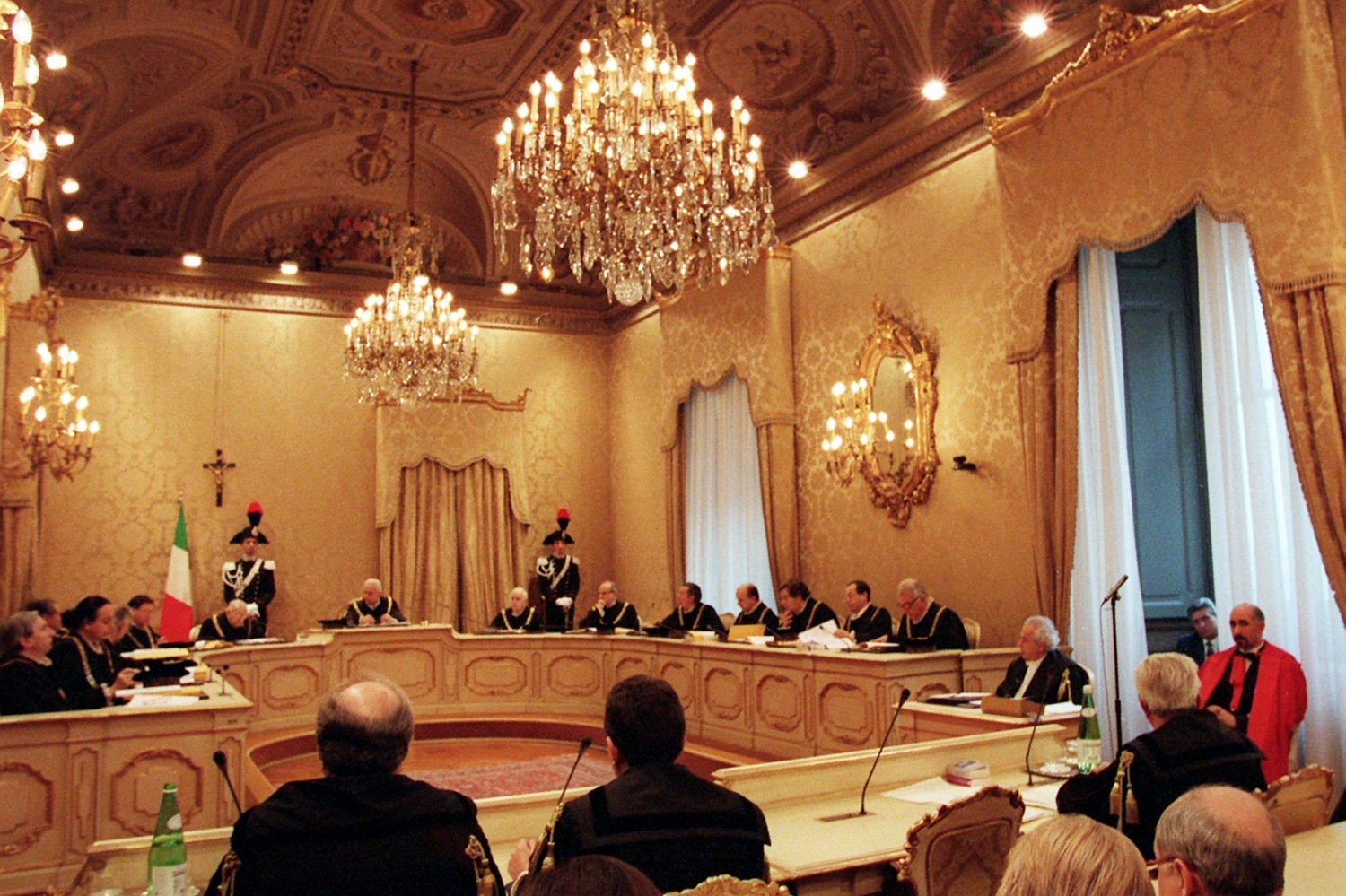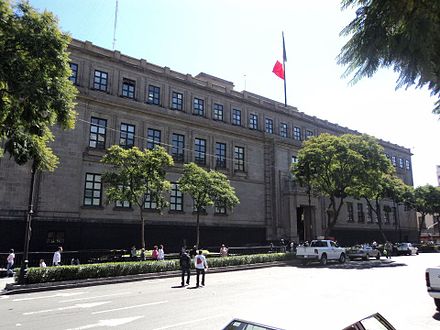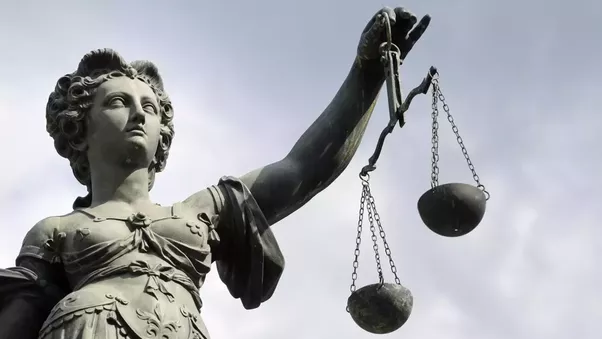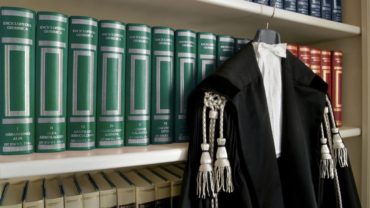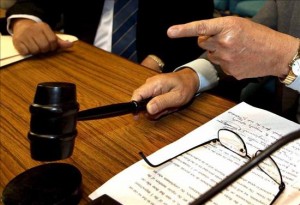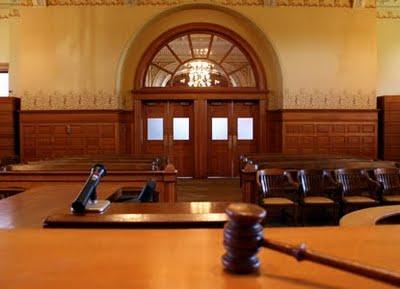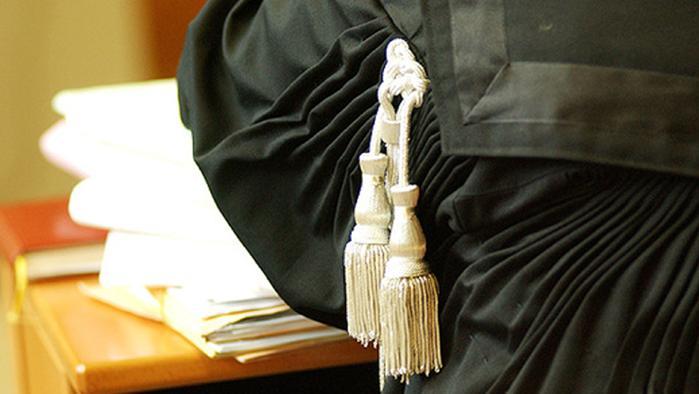-
LA GIUSTIZIA COSTITUZIONALE ITALIANA E MESSICANA: NOZIONE E FINALITÀ: YULHMA V. BALDERAS ORTIZ.
LA GIUSTIZIA COSTITUZIONALE ITALIANA E MESSICANA: NOZIONE E FINALITÀ di Avv. Yulhma V. Ba
aprile 19, 20170 Comments -
LA GIUSTIZIA COSTITUZIONALE NEL XXI SECOLO: YULHMA V. BALDERAS ORTIZ.
LA GIUSTIZIA COSTITUZIONALE NEL XXI SECOLO di Avv. Yulhma V. Balderas Ortiz Dottore di ric
aprile 19, 2017 -
LA CORTE COSTITUZIONALE ITALIANA E LA VALIDITÀ DELLE SUE ORDINANZE E SENTENZE NEL GIUDIZIO DI LEGITTIMITÀ IN VIA INCIDENTALE: YULHMA V. BALDERAS ORTIZ.
LA CORTE COSTITUZIONALE ITALIANA E LA VALIDITÀ DELLE SUE ORDINANZE E SENTENZE NEL GIUDIZI
aprile 19, 2017 -
GLI ELEMENTI COSTITUTIVI DELLA SENTENZA DELLA PLENARIA DELLA CORTE SUPREMA MESSICANA IN SEDE DI CONFLITTO DI ATTRIBUZIONE: YULHMA V. BALDERAS ORTIZ.
GLI ELEMENTI COSTITUTIVI DELLA SENTENZA DELLA PLENARIA DELLA CORTE SUPREMA MESSICANA IN SE
aprile 19, 2017 -
LA CORTE COSTITUZIONALE ITALIANA E LA GIURISPRUDENZA COSTITUZIONALE NEL GIUDIZIO PER CONFLITTO DI ATTRIBUZIONE TRA STATO E REGIONI E TRA REGIONI (2009): YULHMA V. BALDERAS ORTIZ.
LA CORTE COSTITUZIONALE ITALIANA E LA GIURISPRUDENZA COSTITUZIONALE NEL GIUDIZIO PER CONFL
aprile 19, 2017 -
LA CORTE COSTITUZIONALE ITALIANA E LA GIURISPRUDENZA COSTITUZIONALE DEL 2009 NEL GIUDIZIO DI LEGITTIMITÀ IN VIA PRINCIPALE: YULHMA V. BALDERAS ORTIZ.
LA CORTE COSTITUZIONALE ITALIANA E LA GIURISPRUDENZA COSTITUZIONALE DEL 2009 NEL GIUDIZIO
aprile 19, 2017 -
GLI ELEMENTI COSTITUTIVI DELLA SENTENZA DELLA PLENARIA DELLA CORTE SUPREMA MESSICANA (ARTICOLI 41, 43, 44 E 45), DELLA LEGGE DI ESECUZIONE DEI COMMI I E II DELL’ARTICOLO 105, DELLA COSTITUZIONE FEDERALE: YULHMA V. BALDERAS ORTIZ.
GLI ELEMENTI COSTITUTIVI DELLA SENTENZA DELLA PLENARIA DELLA CORTE SUPREMA MESSICANA (ARTI
aprile 19, 2017 -
LA PLENARIA DELLA CORTE SUPREMA MESSICANA E LA VALIDITÀ DELLE SUE SENTENZE NEL RICORSO DI REVISIONE DI AMPARO: YULHMA V. BALDERAS ORTIZ.
LA PLENARIA DELLA CORTE SUPREMA MESSICANA E LA VALIDITÀ DELLE SUE SENTENZE NEL RICORSO DI
aprile 19, 2017 -
L’ORIGINE E I MODELLI DELLA GIUSTIZIA COSTITUZIONALE: YULHMA V. BALDERAS ORTIZ.
L’ORIGINE E I MODELLI DELLA GIUSTIZIA COSTITUZIONALE di Avv. Yulhma V. Balderas O
aprile 20, 2017 -
LA GIUSTIZIA COSTITUZIONALE STATUNITENSE: YULHMA V. BALDERAS ORTIZ.
LA GIUSTIZIA COSTITUZIONALE STATUNITENSE di Avv. Yulhma V. Balderas Ortiz Dottore di ri
aprile 20, 2017 -
ALCUNE NOZIONI SUL SISTEMA STATUNITENSE DI GIUSTIZIA COSTITUZIONALE: YULHMA V. BALDERAS ORTIZ.
ALCUNE NOZIONI SUL SISTEMA STATUNITENSE DI GIUSTIZIA COSTITUZIONALE di Avv. Yulhma V. B
aprile 20, 2017 -
LA GIUSTIZIA COSTITUZIONALE EUROPEA: YULHMA V. BALDERAS ORTIZ.
LA GIUSTIZIA COSTITUZIONALE EUROPEA di Avv. Yulhma V. Balderas Ortiz Dottore di ricerca
aprile 21, 2017 -
LE REGOLE DI FUNZIONAMENTO DELLA CORTE SUPREMA DI GIUSTIZIA FEDERALE MESSICANA: YULHMA V. BALDERAS ORTIZ.
LE REGOLE DI FUNZIONAMENTO DELLA CORTE SUPREMA DI GIUSTIZIA FEDERALE MESSICANA di Avv
aprile 23, 2017 -
LE FONTI SUL SISTEMA DI GIUSTIZIA DELLA CORTE COSTITUZIONALE ITALIANA: YULHMA V. BALDERAS ORTIZ.
LE FONTI SUL SISTEMA DI GIUSTIZIA DELLA CORTE COSTITUZIONALE ITALIANA di Avv. Yulhma V.
aprile 23, 2017 -
LE REGOLE DI FUNZIONAMENTO DELLA CORTE COSTITUZIONALE ITALIANA: YULHMA V. BALDERAS ORTIZ.
LE REGOLE DI FUNZIONAMENTO DELLA CORTE COSTITUZIONALE ITALIANA di Avv. Yulhma V. Balder
aprile 23, 2017 -
IL SISTEMA DI GIUSTIZIA COSTITUZIONALE (LA SCELTA DEL MODELLO COSTITUZIONALE: IL CASO ITALIANO): YULHMA V. BALDERAS ORTIZ.
IL SISTEMA DI GIUSTIZIA COSTITUZIONALE (LA SCELTA DEL MODELLO COSTITUZIONALE: IL CASO ITAL
aprile 23, 2017 -
IL SISTEMA DI GIUSTIZIA COSTITUZIONALE (LA SCELTA DEL MODELLO COSTITUZIONALE, IL CASO ITALIANO E MESSICANO): YULHMA V. BALDERAS ORTIZ.
IL SISTEMA DI GIUSTIZIA COSTITUZIONALE (LA SCELTA DEL MODELLO COSTITUZIONALE, IL CASO ITAL
aprile 23, 2017 -
ALCUNE NOZIONI SUL SISTEMA EUROPEO DI CONTROLLO DI COSTITUZIONALITÀ DELLE LEGGI: YULHMA V. BALDERAS ORTIZ.
ALCUNE NOZIONI SUL SISTEMA EUROPEO DI CONTROLLO DI COSTITUZIONALITÀ DELLE LEGGI di Avv. Y
aprile 23, 2017 -
LE FONTI SUL SISTEMA DI GIUSTIZIA COSTITUZIONALE DELLA CORTE SUPREMA FEDERALE MESSICANA: YULHMA V. BALDERAS ORTIZ.
LE FONTI SUL SISTEMA DI GIUSTIZIA COSTITUZIONALE DELLA CORTE SUPREMA FEDERALE MESSICANA
aprile 23, 2017 -
LA COMPOSIZIONE E LE REGOLE DI ORGANIZZAZIONE DELLA CORTE SUPREMA DI GIUSTIZIA FEDERALE MESSICANA: YULHMA V. BALDERAS ORTIZ.
LA COMPOSIZIONE E LE REGOLE DI ORGANIZZAZIONE DELLA CORTE SUPREMA DI GIUSTIZIA FEDERALE ME
aprile 23, 2017 -
IL SISTEMA DI GIUSTIZIA COSTITUZIONALE (LA SCELTA DEL MODELLO COSTITUZIONALE, IL CASO MESSICANO): YULHMA V. BALDERAS ORTIZ.
IL SISTEMA DI GIUSTIZIA COSTITUZIONALE (LA SCELTA DEL MODELLO COSTITUZIONALE: IL CASO MESS
aprile 23, 2017 -
LA COMPOSIZIONE E LE REGOLE DI ORGANIZZAZIONE DELLA CORTE COSTITUZIONALE ITALIANA: YULHMA V. BALDERAS ORTIZ.
LA COMPOSIZIONE E LE REGOLE DI ORGANIZZAZIONE DELLA CORTE COSTITUZIONALE ITALIANA di Av
aprile 23, 2017 -
LA CONVENCIÓN EUROPEA DE DERECHOS HUMANOS Y LA LEGISLACIÓN ITALIANA EN MATERIA DE LIBERTAD DE INFORMACIÓN Y DE DERECHO A LA REPUTACIÓN: UMBERTO G. ZINGALES.
UMBERTO G. ZINGALES* LA CONVENCIÓN EUROPEA DE DERECHOS HUMANOS Y LA LEGISLACIÓN ITALIANA
aprile 26, 2017 -
LA INCIDENCIA DE LA CORTE DE JUSTICIA EUROPEA Y LA CORTE EUROPEA DE DERECHOS HUMANOS, EN LA TUTELA DE LA SALUD EN LA CONSTITUCIÓN ITALIANA: GUERINO FARES.
GUERINO FARES* LA INCIDENCIA DE LA CORTE DE JUSTICIA EUROPEA Y LA CORTE EUROPEA DE DERECHO
aprile 26, 2017 -
IL GIUDIZIO IN VIA INCIDENTALE DAVANTI ALLA CORTE COSTITUZIONALE ITALIANA (FONTI, ESIGENZE PRATICHE E MOTIVAZIONI TEORICHE): YULHMA V. BALDERAS ORTIZ.
IL GIUDIZIO IN VIA INCIDENTALE DAVANTI ALLA CORTE COSTITUZIONALE ITALIANA (FONTI, ESIGENZE
maggio 17, 2017 -
IL GIUDIZIO IN VIA INCIDENTALE DAVANTI ALLA CORTE COSTITUZIONALE ITALIANA (IL GIUDICE A QUO): YULHMA V. BALDERAS ORTIZ.
IL GIUDIZIO IN VIA INCIDENTALE DAVANTI ALLA CORTE COSTITUZIONALE ITALIANA (IL GIUDICE A QU
maggio 17, 2017 -
IL GIUDIZIO IN VIA INCIDENTALE DAVANTI ALLA CORTE COSTITUZIONALE ITALIANA (LA RILEVANZA): YULHMA V. BALDERAS ORTIZ.
IL GIUDIZIO IN VIA INCIDENTALE DAVANTI ALLA CORTE COSTITUZIONALE ITALIANA (LA RILEVANZA) d
maggio 17, 2017 -
IL GIUDIZIO IN VIA INCIDENTALE DAVANTI ALLA CORTE COSTITUZIONALE ITALIANA (LA NON MANIFESTA INFONDATEZZA): YULHMA V. BALDERAS ORTIZ.
IL GIUDIZIO IN VIA INCIDENTALE DAVANTI ALLA CORTE COSTITUZIONALE ITALIANA (LA NON MANIFEST
maggio 17, 2017 -
IL GIUDIZIO IN VIA INCIDENTALE DAVANTI ALLA CORTE COSTITUZIONALE ITALIANA (L’ORDINANZA DI RIMESSIONE): YULHMA V. BALDERAS ORTIZ.
IL GIUDIZIO IN VIA INCIDENTALE DAVANTI ALLA CORTE COSTITUZIONALE ITALIANA (L’ORDINANZA D
maggio 17, 2017 -
IL GIUDIZIO IN VIA INCIDENTALE DAVANTI ALLA CORTE COSTITUZIONALE ITALIANA (L’ITER DAVANTI ALLA CONSULTA): YULHMA V. BALDERAS ORTIZ.
IL GIUDIZIO IN VIA INCIDENTALE DAVANTI ALLA CORTE COSTITUZIONALE ITALIANA (L’ITER DI
maggio 17, 2017 -
CONCETTO E NATURA GIURIDICA DELL’AMPARO IN MESSICO: YULHMA V. BALDERAS ORTIZ.
CONCETTO E NATURA GIURIDICA DELL’AMPARO IN MESSICO di Avv. Yulhma V. Balderas Ortiz Dott
maggio 17, 2017 -
COMPETENZA DELLA CORTE SUPREMA DEL GIUDIZIO DI AMPARO IN SEDE DI REVISIONE IN MESSICO: YULHMA V. BALDERAS ORTIZ.
COMPETENZA DELLA CORTE SUPREMA DEL GIUDIZIO DI AMPARO IN SEDE DI REVISIONE IN MESSICO di A
maggio 17, 2017 -
L’OGGETTO DEI RICORSI SOLLEVATI DINANZI ALLA CORTE SUPREMA (AMPARO) IN SEDE DI REVISIONE IN MESSICO: YULHMA V. BALDERAS ORTIZ.
L’OGGETTO DEI RICORSI SOLLEVATI DINANZI ALLA CORTE SUPREMA (AMPARO) IN SEDE DI REVISIONE
maggio 17, 2017 -
CONDIZIONI DI IMPROCEDIBILITÀ DEI RICORSI SOLLEVATI DINANZI ALLA CORTE SUPREMA (AMPARO) IN SEDE DI REVISIONE IN MESSICO: YULHMA V. BALDERAS ORTIZ.
CONDIZIONI DI IMPROCEDIBILITÀ DEI RICORSI SOLLEVATI DINANZI ALLA CORTE SUPREMA (AMPARO) I
maggio 17, 2017 -
CONDIZIONI DI SOBRESEIMIENTO (RIGETTO) DEI RICORSI SOLLEVATI DINANZI ALLA CORTE SUPREMA (AMPARO) IN SEDE DI REVISIONE IN MESSICO: YULHMA V. BALDERAS ORTIZ.
CONDIZIONI DI SOBRESEIMIENTO (RIGETTO) DEI RICORSI SOLLEVATI DINANZI ALLA CORTE SUPREMA (A
maggio 17, 2017 -
TERMINI PROCESSUALI DEI RICORSI SOLLEVATI DINANZI ALLA CORTE SUPREMA (AMPARO) IN SEDE DI REVISIONE IN MESSICO: YULHMA V. BALDERAS ORTIZ.
TERMINI PROCESSUALI DEI RICORSI SOLLEVATI DINANZI ALLA CORTE SUPREMA (AMPARO) IN SEDE DI R
maggio 17, 2017 -
LE PARTI NEL GIUDIZIO DI AMPARO E NEI RICORSI SOLLEVATI DINANZI ALLA CORTE SUPREMA (AMPARO) IN SEDE DI REVISIONE IN MESSICO: YULHMA V. BALDERAS ORTIZ.
LE PARTI NEL GIUDIZIO DI AMPARO E NEI RICORSI SOLLEVATI DINANZI ALLA CORTE SUPREMA (AMPAR
maggio 17, 2017 -
LA SOSPENSIONE NEL GIUDIZIO DI AMPARO IN MESSICO: YULHMA V. BALDERAS ORTIZ.
LA SOSPENSIONE NEL GIUDIZIO DI AMPARO IN MESSICO di Avv. Yulhma V. Balderas Ortiz Dottore
maggio 17, 2017 -
I PRINCIPI FONDAMENTALI DEL GIUDIZIO DI AMPARO IN MESSICO: YULHMA V. BALDERAS ORTIZ.
I PRINCIPI FONDAMENTALI DEL GIUDIZIO DI AMPARO IN MESSICO di Avv. Yulhma V. Balderas Orti
maggio 17, 2017 -
LA FASE DAVANTI ALLA CORTE SUPREMA DI GIUSTIZIA FEDERALE MESSICANA NEI GIUDIZI DI AMPARO: YULHMA V. BALDERAS ORTIZ.
LA FASE DAVANTI ALLA CORTE SUPREMA DI GIUSTIZIA FEDERALE MESSICANA NEI GIUDIZI DI AMPARO
maggio 17, 2017 -
LA SENTENZA E GLI EFFETTI: CORTE SUPREMA DI GIUSTIZIA FEDERALE MESSICANA, NELLA C.D. AZIONE DI INCOSTITUZIONALITÀ: YULHMA V. BALDERAS ORTIZ.
LA SENTENZA E GLI EFFETTI: CORTE SUPREMA DI GIUSTIZIA FEDERALE MESSICANA, NELLA C.D. AZION
giugno 6, 2017 -
L’ESECUZIONE DELLE SENTENZE: CORTE SUPREMA DI GIUSTIZIA FEDERALE MESSICANA, NELLA C.D. AZIONE DI INCOSTITUZIONALITÀ: YULHMA V. BALDERAS ORTIZ.
L’ESECUZIONE DELLE SENTENZE: CORTE SUPREMA DI GIUSTIZIA FEDERALE MESSICANA, NELLA C.D. A
giugno 6, 2017 -
LA GIURISPRUDENZA COSTITUZIONALE DEL 2009: CORTE SUPREMA DI GIUSTIZIA FEDERALE MESSICANA, NELLA C.D. AZIONE DI INCOSTITUZIONALITÀ: YULHMA V. BALDERAS ORTIZ.
LA GIURISPRUDENZA COSTITUZIONALE DEL 2009: CORTE SUPREMA DI GIUSTIZIA FEDERALE MESSICANA,
giugno 6, 2017 -
LA FASE DAVANTI ALLA CORTE SUPREMA DI GIUSTIZIA FEDERALE MESSICANA, DELLA C.D. AZIONE DI INCOSTITUZIONALITÀ: YULHMA V. BALDERAS ORTIZ.
LA FASE DAVANTI ALLA CORTE SUPREMA DI GIUSTIZIA FEDERALE MESSICANA, DELLA C.D. AZIONE DI I
giugno 6, 2017 -
LA SOSPENSIONE NELLA C.D. AZIONE DI INCOSTITUZIONALITÀ DAVANTI ALLA CORTE SUPREMA DI GIUSTIZIA FEDERALE MESSICANA: YULHMA V. BALDERAS ORTIZ.
LA SOSPENSIONE NELLA C.D. AZIONE DI INCOSTITUZIONALITÀ DAVANTI ALLA CORTE SUPREMA DI GIU
giugno 6, 2017 -
LE PARTI NELLA C.D. AZIONE DI INCOSTITUZIONALITÀ DAVANTI ALLA CORTE SUPREMA DI GIUSTIZIA FEDERALE MESSICANA: YULHMA V. BALDERAS ORTIZ.
LE PARTI NELLA C.D. AZIONE DI INCOSTITUZIONALITÀ DAVANTI ALLA CORTE SUPREMA DI GIUSTIZIA
giugno 6, 2017 -
TERMINI PROCESSUALI DELLA C.D. AZIONE DI INCOSTITUZIONALITÀ DAVANTI ALLA CORTE SUPREMA DI GIUSTIZIA FEDERALE MESSICANA: YULHMA V. BALDERAS ORTIZ.
TERMINI PROCESSUALI DELLA C.D. AZIONE DI INCOSTITUZIONALITÀ DAVANTI ALLA CORTE SUPREMA D
giugno 6, 2017 -
CONDIZIONI DI SOBRESEIMIENTO (RIGETTO) DELLA C.D. AZIONE DI INCOSTITUZIONALITÀ DAVANTI ALLA CORTE SUPREMA DI GIUSTIZIA FEDERALE MESSICANA: YULHMA V. BALDERAS ORTIZ.
CONDIZIONI DI SOBRESEIMIENTO (RIGETTO) DELLA C.D. AZIONE DI INCOSTITUZIONALITÀ DAVANTI A
giugno 6, 2017 -
CONDIZIONI DI IMPROCEDIBILITÀ DELLA C.D. AZIONE DI INCOSTITUZIONALITÀ DAVANTI ALLA CORTE SUPREMA DI GIUSTIZIA FEDERALE MESSICANA: YULHMA V. BALDERAS ORTIZ.
CONDIZIONI DI IMPROCEDIBILITÀ DELLA C.D. AZIONE DI INCOSTITUZIONALITÀ DAVANTI ALLA CORT
giugno 6, 2017 -
L’OGGETTO DELLA C.D. AZIONE DI INCOSTITUZIONALITÀ DAVANTI ALLA CORTE SUPREMA DI GIUSTIZIA FEDERALE MESSICANA: YULHMA V. BALDERAS ORTIZ.
L’OGGETTO DELLA C.D. AZIONE DI INCOSTITUZIONALITÀ DAVANTI ALLA CORTE SUPREMA DI GI
giugno 6, 2017 -
CONCETTO E FONDAMENTO COSTITUZIONALE DELLA C.D. AZIONE DI INCOSTITUZIONALITÀ DAVANTI ALLA CORTE SUPREMA DI GIUSTIZIA FEDERALE MESSICANA: YULHMA V. BALDERAS ORTIZ.
CONCETTO E FONDAMENTO COSTITUZIONALE DELLA C.D. AZIONE DI INCOSTITUZIONALITÀ DAVANTI ALL
giugno 6, 2017 -
LA DISCIPLINA CONCERNENTE, LE REGIONI SPECIALI NELL’ORDINAMENTO ITALIANO: YULHMA V. BALDERAS ORTIZ.
LA DISCIPLINA CONCERNENTE, LE REGIONI SPECIALI NELL’ORDINAMENTO ITALIANO di Avv.
giugno 6, 2017 -
I PROBLEMI DI TRANSIZIONE DELL’ORDINAMENTO ITALIANO DOPO LA RIFORMA COSTITUZIONALE DEL 2001: YULHMA V. BALDERAS ORTIZ.
I PROBLEMI DI TRANSIZIONE DELL’ORDINAMENTO ITALIANO DOPO LA RIFORMA COSTITUZIONALE DEL 2
giugno 6, 2017 -
LO SVOLGIMENTO DEL GIUDIZIO IN VIA PRINCIPALE NELL’ORDINAMENTO ITALIANO, (PROFILI PROCESSUALI): YULHMA V. BALDERAS ORTIZ.
LO SVOLGIMENTO DEL GIUDIZIO IN VIA PRINCIPALE NELL’ORDINAMENTO ITALIANO: (PROFILI
giugno 6, 2017 -
CARATTERI GENERALI DELL’IMPUGNAZIONE IN VIA PRINCIPALE NELL’ORDINAMENTO ITALIANO, I VIZI DENUNCIABILI: YULHMA V. BALDERAS ORTIZ.
CARATTERI GENERALI DELL’IMPUGNAZIONE IN VIA PRINCIPALE NELL’ORDINAMENTO ITALIANO:
giugno 6, 2017 -
CARATTERI GENERALI DELL’IMPUGNAZIONE IN VIA PRINCIPALE NELL’ORDINAMENTO ITALIANO, L’INTERESSE A RICORRERE: YULHMA V. BALDERAS ORTIZ.
CARATTERI GENERALI DELL’IMPUGNAZIONE IN VIA PRINCIPALE NELL’ORDINAMENTO ITALIANO:
giugno 6, 2017 -
IL GIUDIZIO IN VIA PRINCIPALE DAVANTI ALLA CORTE COSTITUZIONALE ITALIANA (PRIMA E DOPO LA RIFORMA DEL 2001): YULHMA V. BALDERAS ORTIZ.
IL GIUDIZIO IN VIA PRINCIPALE DAVANTI ALLA CORTE COSTITUZIONALE ITALIANA (PRIMA E DOPO LA
giugno 6, 2017 -
I CONFLITTI DI ATTRIBUZIONE TRA I POTERI DELLO STATO, DAVANTI ALLA CORTE COSTITUZIONALE ITALIANA: YULHMA V. BALDERAS ORTIZ.
I CONFLITTI DI ATTRIBUZIONE TRA I POTERI DELLO STATO, DAVANTI ALLA CORTE COSTITUZIONALE
giugno 7, 2017 -
I POTERI DELLO STATO E GLI ORGANI LEGITTIMATI A SOLLEVARE IL CONFLITTO, DAVANTI ALLA CORTE COSTITUZIONALE ITALIANA: YULHMA V. BALDERAS ORTIZ.
I POTERI DELLO STATO E GLI ORGANI LEGITTIMATI A SOLLEVARE IL CONFLITTO, DAVANTI ALLA CORT
giugno 7, 2017 -
IL PARAMETRO E L’OGGETTO DEI CONFLITTI INTER ORGANICI, DAVANTI ALLA CORTE COSTITUZIONALE ITALIANA: YULHMA V. BALDERAS ORTIZ.
IL PARAMETRO E L’OGGETTO DEI CONFLITTI INTER ORGANICI, DAVANTI ALLA CORTE COSTITUZIONAL
giugno 7, 2017 -
IL PROCESSO E GLI EFFETTI DELLE SENTENZE DELLA CORTE COSTITUZIONALE ITALIANA NEI CONFLITTI DI ATTRIBUZIONE: YULHMA V. BALDERAS ORTIZ.
IL PROCESSO E GLI EFFETTI DELLE SENTENZE DELLA CORTE COSTITUZIONALE ITALIANA NEI CONFLITTI
giugno 7, 2017 -
I CONFLITTI DI ATTRIBUZIONE TRA STATO E REGIONI E FRA LE REGIONI DAVANTI ALLA CORTE COSTITUZIONALE ITALIANA: YULHMA V. BALDERAS ORTIZ.
I CONFLITTI DI ATTRIBUZIONE TRA STATO E REGIONI E FRA LE REGIONI DAVANTI ALLA CORTE COSTI
giugno 7, 2017 -
PROFILI PROCESSUALI NEI CONFLITTI DI ATTRIBUZIONE, DAVANTI ALLA CORTE COSTITUZIONALE ITALIANA: YULHMA V. BALDERAS ORTIZ.
PROFILI PROCESSUALI NEI CONFLITTI DI ATTRIBUZIONE, DAVANTI ALLA CORTE COSTITUZIONALE ITAL
giugno 7, 2017 -
I POTERI DELLO STATO MESSICANO E GLI ORGANI LEGITTIMATI A SOLLEVARE LA C.D. CONTROVERSIA COSTITUZIONALE, DAVANTI ALLA CORTE SUPREMA DI GIUSTIZIA FEDERALE MESSICANA: YULHMA V. BALDERAS ORTIZ.
I POTERI DELLO STATO MESSICANO E GLI ORGANI LEGITTIMATI A SOLLEVARE LA C.D. CONTROVERSIA C
giugno 7, 2017 -
CONDIZIONI DI IMPROCEDIBILITÀ NELLA C.D. CONTROVERSIA COSTITUZIONALE, DAVANTI ALLA CORTE SUPREMA DI GIUSTIZIA FEDERALE MESSICANA: YULHMA V. BALDERAS ORTIZ.
CONDIZIONI DI IMPROCEDIBILITÀ NELLA C.D. CONTROVERSIA COSTITUZIONALE, DAVANTI ALLA COR
giugno 7, 2017 -
CONDIZIONI DI SOBRESEIMIENTO (RIGETTO), DAVANTI ALLA CORTE SUPREMA DI GIUSTIZIA FEDERALE MESSICANA: YULHMA V. BALDERAS ORTIZ.
CONDIZIONI DI SOBRESEIMIENTO (RIGETTO) NELLA C.D. CONTROVERSIA COSTITUZIONALE, DAVANTI
giugno 7, 2017 -
TERMINI PROCESSUALI NELLA C.D. CONTROVERSIA COSTITUZIONALE, DAVANTI ALLA CORTE SUPREMA DI GIUSTIZIA FEDERALE MESSICANA: YULHMA V. BALDERAS ORTIZ.
TERMINI PROCESSUALI NELLA C.D. CONTROVERSIA COSTITUZIONALE, DAVANTI ALLA CORTE SUPREMA DI
giugno 7, 2017 -
LE PARTI NELLA C.D. CONTROVERSIA COSTITUZIONALE, DAVANTI ALLA CORTE SUPREMA DI GIUSTIZIA FEDERALE MESSICANA: YULHMA V. BALDERAS ORTIZ.
LE PARTI NELLA C.D. CONTROVERSIA COSTITUZIONALE, DAVANTI ALLA CORTE SUPREMA DI GIUSTIZIA F
giugno 7, 2017 -
LA SOSPENSIONE NELLA C.D. CONTROVERSIA COSTITUZIONALE, DAVANTI ALLA CORTE SUPREMA DI GIUSTIZIA FEDERALE MESSICANA: YULHMA V. BALDERAS ORTIZ.
LA SOSPENSIONE NELLA C.D. CONTROVERSIA COSTITUZIONALE, DAVANTI ALLA CORTE SUPREMA DI GIUST
giugno 7, 2017 -
DELLA DOMANDA E LA COMPARSA DI RISPOSTA NELLA C.D. CONTROVERSIA COSTITUZIONALE, DAVANTI ALLA CORTE SUPREMA DI GIUSTIZIA FEDERALE MESSICANA: YULHMA V. BALDERAS ORTIZ.
DELLA DOMANDA E LA COMPARSA DI RISPOSTA NELLA C.D. CONTROVERSIA COSTITUZIONALE, DAVANTI A
giugno 7, 2017 -
GLI INCIDENTI E I RICORSI NELLA C.D. CONTROVERSIA COSTITUZIONALE, DAVANTI ALLA CORTE SUPREMA DI GIUSTIZIA FEDERALE MESSICANA: YULHMA V. BALDERAS ORTIZ.
GLI INCIDENTI E I RICORSI NELLA C.D. CONTROVERSIA COSTITUZIONALE, DAVANTI ALLA CORTE SUPRE
giugno 7, 2017 -
LA FASE DELLA C.D. CONTROVERSIA COSTITUZIONALE, DAVANTI ALLA CORTE SUPREMA DI GIUSTIZIA FEDERALE MESSICANA: YULHMA V. BALDERAS ORTIZ.
LA FASE DELLA C.D. CONTROVERSIA COSTITUZIONALE, DAVANTI ALLA CORTE SUPREMA DI GIUSTIZIA FE
giugno 7, 2017 -
LA GIURISPRUDENZA COSTITUZIONALE DEL 2009 NELLA C.D. CONTROVERSIA COSTITUZIONALE, DAVANTI ALLA CORTE SUPREMA DI GIUSTIZIA FEDERALE MESSICANA: YULHMA V. BALDERAS ORTIZ.
LA GIURISPRUDENZA COSTITUZIONALE DEL 2009 NELLA C.D. CONTROVERSIA COSTITUZIONALE, DAVANTI
giugno 7, 2017 -
IL GIUDIZIO SUI REATI DEL PRESIDENTE DELLA REPUBBLICA, DAVANTI ALLA CORTE COSTITUZIONALE ITALIANA: YULHMA V. BALDERAS ORTIZ.
IL GIUDIZIO SUI REATI DEL PRESIDENTE DELLA REPUBBLICA, DAVANTI ALLA CORTE COSTITUZIONALE
giugno 8, 2017 -
IL GIUDIZIO SUI REATI DEL PRESIDENTE DELLA REPUBBLICA, DAVANTI ALLA CORTE COSTITUZIONALE ITALIANA: FATTISPECIE DI RESPONSABILITÀ PENALE: YULHMA V. BALDERAS ORTIZ.
IL GIUDIZIO SUI REATI DEL PRESIDENTE DELLA REPUBBLICA, DAVANTI ALLA CORTE COSTITUZIONALE
giugno 8, 2017 -
IL GIUDIZIO SUI REATI DEL PRESIDENTE DELLA REPUBBLICA, DAVANTI ALLA CORTE COSTITUZIONALE ITALIANA: DISCIPLINA DEL PROCEDIMENTO: YULHMA V. BALDERAS ORTIZ.
IL GIUDIZIO SUI REATI DEL PRESIDENTE DELLA REPUBBLICA, DAVANTI ALLA CORTE COSTITUZIONALE
giugno 8, 2017 -
IL GIUDIZIO SUI REATI DEL PRESIDENTE DELLA REPUBBLICA, DAVANTI ALLA CORTE COSTITUZIONALE ITALIANA: PROCEDURA: FASE PARLAMENTARE E GIURISDIZIONALE: YULHMA V. BALDERAS ORTIZ.
IL GIUDIZIO SUI REATI DEL PRESIDENTE DELLA REPUBBLICA, DAVANTI ALLA CORTE COSTITUZIONALE
giugno 8, 2017 -
I C.D. REATI MINISTERIALI, DAVANTI ALLA CORTE COSTITUZIONALE ITALIANA: YULHMA V. BALDERAS ORTIZ.
I C.D. REATI MINISTERIALI, DAVANTI ALLA CORTE COSTITUZIONALE ITALIANA di Avv. Yulhma V. B
giugno 8, 2017 -
I LIMITI GIURISPRUDENZIALI AL REFERENDUM, IN ITALIA: YULHMA V. BALDERAS ORTIZ.
I LIMITI GIURISPRUDENZIALI AL REFERENDUM, IN ITALIA di Avv. Yulhma V. Balderas Ortiz Dot
giugno 8, 2017 -
IL GIUDIZIO DI AMMISSIBILITÀ DEL REFERENDUM, DAVANTI ALLA CORTE COSTITUZIONALE ITALIANA: YULHMA V. BALDERAS ORTIZ.
IL GIUDIZIO DI AMMISSIBILITÀ DEL REFERENDUM, DAVANTI ALLA CORTE COSTITUZIONALE ITALIANA
giugno 8, 2017 -
IL GIUDIZIO DI AMMISSIBILITÀ DEL REFERENDUM, LA FASE DAVANTI ALL’UFFICIO CENTRALE PER IL REFERENDUM COSTITUITO PRESSO LA CORTE DI CASSAZIONE: YULHMA V. BALDERAS ORTIZ.
IL GIUDIZIO DI AMMISSIBILITÀ DEL REFERENDUM, LA FASE DAVANTI ALL’UFFICIO CENTRALE
giugno 8, 2017 -
L’INDIZIONE DEL REFERENDUM ABROGATIVO, LA FASE DAVANTI ALLA CORTE COSTITUZIONALE ITALIANA: YULHMA V. BALDERAS ORTIZ.
L’INDIZIONE DEL REFERENDUM ABROGATIVO, LA FASE DAVANTI ALLA CORTE COSTITUZIONALE ITALIAN
giugno 8, 2017 -
IL GIUDIZIO DI AMMISSIBILITÀ DEL REFERENDUM, LA FASE DAVANTI ALLA CORTE COSTITUZIONALE ITALIANA: YULHMA V. BALDERAS ORTIZ.
IL GIUDIZIO DI AMMISSIBILITÀ DEL REFERENDUM, LA FASE DAVANTI ALLA CORTE COSTITUZIONALE I
giugno 8, 2017 -
IL POTERE DI INCHIESTA, DAVANTI ALLA CORTE SUPREMA DI GIUSTIZIA FEDERALE MESSICANA, FONTI E ESIGENZE PRATICHE: YULHMA V. BALDERAS ORTIZ.
IL POTERE DI INCHIESTA, DAVANTI ALLA CORTE SUPREMA DI GIUSTIZIA FEDERALE MESSICANA: FONT
giugno 20, 2017 -
DISCIPLINA DEL POTERE DI INCHIESTA, DAVANTI ALLA CORTE SUPREMA DI GIUSTIZIA FEDERALE MESSICANA: YULHMA V. BALDERAS ORTIZ.
DISCIPLINA DEL POTERE DI INCHIESTA, DAVANTI ALLA CORTE SUPREMA DI GIUSTIZIA FEDERALE MESS
giugno 20, 2017 -
NATURA DEL POTERE DI INCHIESTA, DAVANTI ALLA CORTE SUPREMA DI GIUSTIZIA FEDERALE MESSICANA: YULHMA V. BALDERAS ORTIZ.
NATURA DEL POTERE DI INCHIESTA, DAVANTI ALLA CORTE SUPREMA DI GIUSTIZIA FEDERALE MESSICAN
giugno 20, 2017 -
L’OGGETTO E LE CONDIZIONI DI PROCEDIBILITÀ DEL POTERE DI INCHIESTA, DAVANTI ALLA CORTE SUPREMA DI GIUSTIZIA FEDERALE MESSICANA: YULHMA V. BALDERAS ORTIZ.
L’OGGETTO E LE CONDIZIONI DI PROCEDIBILITÀ DEL POTERE DI INCHIESTA, DAVANTI ALLA CORTE
giugno 20, 2017 -
I RICHIEDENTI DEL POTERE DI INCHIESTA, DAVANTI ALLA CORTE SUPREMA DI GIUSTIZIA FEDERALE MESSICANA: YULHMA V. BALDERAS ORTIZ.
I RICHIEDENTI DEL POTERE DI INCHIESTA, DAVANTI ALLA CORTE SUPREMA DI GIUSTIZIA FEDERALE M
giugno 20, 2017 -
I COMMISSARI NEL POTERE DI INCHIESTA, DAVANTI ALLA CORTE SUPREMA DI GIUSTIZIA FEDERALE MESSICANA: YULHMA V. BALDERAS ORTIZ.
I COMMISSARI NEL POTERE DI INCHIESTA, DAVANTI ALLA CORTE SUPREMA DI GIUSTIZIA FEDERALE ME
giugno 20, 2017 -
NATURA E PRESENTAZIONE DEL C.D. RAPPORTO INFORMATIVO PRELIMINARE NEL POTERE DI INCHIESTA, DAVANTI ALLA CORTE SUPREMA DI GIUSTIZIA FEDERALE MESSICANA: YULHMA V. BALDERAS ORTIZ.
NATURA E PRESENTAZIONE DEL C.D. RAPPORTO INFORMATIVO PRELIMINARE NEL POTERE DI INCHIESTA,
giugno 20, 2017 -
DESTINATARIO DEL C.D. RAPPORTO INFORMATIVO PRELIMINARE NEL POTERE DI INCHIESTA, DAVANTI ALLA CORTE SUPREMA DI GIUSTIZIA FEDERALE MESSICANA: YULHMA V. BALDERAS ORTIZ.
DESTINATARIO DEL C.D. RAPPORTO INFORMATIVO PRELIMINARE NEL POTERE DI INCHIESTA, DAVANTI A
giugno 20, 2017 -
EFFETTI DEL C.D. DICTAMEN NEL POTERE DI INCHIESTA, DAVANTI ALLA CORTE SUPREMA DI GIUSTIZIA FEDERALE MESSICANA: YULHMA V. BALDERAS ORTIZ.
EFFETTI DEL C.D. DICTAMEN NEL POTERE DI INCHIESTA, DAVANTI ALLA CORTE SUPREMA DI GIUSTIZIA
giugno 20, 2017 -
LA FACOLTÀ DI AVOCAZIONE, DAVANTI ALLA CORTE SUPREMA DI GIUSTIZIA FEDERALE MESSICANA: YULHMA V. BALDERAS ORTIZ.
LA FACOLTÀ DI AVOCAZIONE, DAVANTI ALLA CORTE SUPREMA DI GIUSTIZIA FEDERALE MESSICANA di
giugno 20, 2017 -
LA COMPETENZA DELLA CORTE SUPREMA DI GIUSTIZIA FEDERALE MESSICANA, A CONOSCERE SUL CONTRASTO DI CRITERI GIURISPRUDENZIALI: YULHMA V. BALDERAS ORTIZ.
LA COMPETENZA DELLA CORTE SUPREMA DI GIUSTIZIA FEDERALE MESSICANA, A CONOSCERE SUL CONTRA
giugno 20, 2017 -
L’ATTRIBUZIONE DELLA CORTE SUPREMA DI GIUSTIZIA FEDERALE MESSICANA, A CONOSCERE DEI CONFLITTI DI COMPETENZA TRA I TRIBUNALI DELLA FEDERAZIONE: YULHMA V. BALDERAS ORTIZ.
L’ATTRIBUZIONE DELLA CORTE SUPREMA DI GIUSTIZIA FEDERALE MESSICANA, A CONOSCERE DEI C
giugno 20, 2017 -
L’ATTRIBUZIONE DELLA CORTE SUPREMA DI GIUSTIZIA FEDERALE MESSICANA, A CONOSCERE DEI RICORSI AMMINISTRATIVI: YULHMA V. BALDERAS ORTIZ.
L’ATTRIBUZIONE DELLA CORTE SUPREMA DI GIUSTIZIA FEDERALE MESSICANA, A CONOSCERE DEI
giugno 20, 2017 -
LA COMPETENZA DELLA CORTE SUPREMA DI GIUSTIZIA FEDERALE MESSICANA, A CONOSCERE SULLA DESTITUZIONE DELLE AUTORITÀ PER LA VIOLAZIONE DI SENTENZE DI AMPARO: YULHMA V. BALDERAS ORTIZ.
LA COMPETENZA DELLA CORTE SUPREMA DI GIUSTIZIA FEDERALE MESSICANA, A CONOSCERE SULLA DEST
giugno 20, 2017 -
I PROVVEDIMENTI DAVANTI ALLA CORTE COSTITUZIONALE ITALIANA: YULHMA V. BALDERAS ORTIZ.
I PROVVEDIMENTI DAVANTI ALLA CORTE COSTITUZIONALE ITALIANA di Avv. Yulhma V. Balderas Ort
luglio 4, 2017 -
TIPI DI PRONUNZIE: LE DECISIONI PROCESSUALI E DI MERITO DAVANTI ALLA CORTE COSTITUZIONALE ITALIANA: YULHMA V. BALDERAS ORTIZ.
TIPI DI PRONUNZIE: LE DECISIONI PROCESSUALI E DI MERITO DAVANTI ALLA CORTE COSTITUZIONALE
luglio 4, 2017 -
LE SENTENZE INTERPRETATIVE (IN SENSO STRETTO), DAVANTI ALLA CORTE COSTITUZIONALE ITALIANA: YULHMA V. BALDERAS ORTIZ.
LE SENTENZE INTERPRETATIVE (IN SENSO STRETTO), DAVANTI ALLA CORTE COSTITUZIONALE ITALIANA
luglio 4, 2017 -
LE SENTENZE MANIPOLATIVE, DAVANTI ALLA CORTE COSTITUZIONALE ITALIANA: YULHMA V. BALDERAS ORTIZ.
LE SENTENZE MANIPOLATIVE, DAVANTI ALLA CORTE COSTITUZIONALE ITALIANA di Avv. Yulhma V. Ba
luglio 4, 2017 -
I LIMITI DELLE SENTENZE ADDITIVE E SOSTITUTIVE, DAVANTI ALLA CORTE COSTITUZIONALE ITALIANA: YULHMA V. BALDERAS ORTIZ.
I LIMITI DELLE SENTENZE ADDITIVE E SOSTITUTIVE, DAVANTI ALLA CORTE COSTITUZIONALE ITALIAN
luglio 4, 2017 -
IL SEGUITO DELLE SENTENZE DELLA CORTE COSTITUZIONALE ITALIANA: YULHMA V. BALDERAS ORTIZ.
IL SEGUITO DELLE SENTENZE DELLA CORTE COSTITUZIONALE ITALIANA di Avv. Yulhma V. Balderas
luglio 4, 2017 -
I PROVVEDIMENTI DAVANTI ALLA CORTE SUPREMA DI GIUSTIZIA FEDERALE MESSICANA: YULHMA V. BALDERAS ORTIZ.
I PROVVEDIMENTI DAVANTI ALLA CORTE SUPREMA DI GIUSTIZIA FEDERALE MESSICANA di Avv. Yulhma
luglio 4, 2017 -
LE SENTENZE DI AMPARO DAVANTI ALLA CORTE SUPREMA DI GIUSTIZIA FEDERALE MESSICANA: YULHMA V. BALDERAS ORTIZ.
LE SENTENZE DI AMPARO DAVANTI ALLA CORTE SUPREMA DI GIUSTIZIA FEDERALE MESSICANA di Avv.
luglio 4, 2017 -
LE SENTENZE DELLE C.D. AZIONI DI INCOSTITUZIONALITÀ E DELLE C.D. CONTROVERSIE COSTITUZIONALI, DAVANTI ALLA CORTE SUPREMA DI GIUSTIZIA FEDERALE MESSICANA: YULHMA V. BALDERAS ORTIZ.
LE SENTENZE DELLE C.D. AZIONI DI INCOSTITUZIONALITÀ E DELLE C.D. CONTROVERSIE COSTITUZION
luglio 4, 2017 -
LE OPINIONI DISSENZIENTI, DAVANTI ALLA CORTE SUPREMA DI GIUSTIZIA FEDERALE MESSICANA: YULHMA V. BALDERAS ORTIZ.
LE OPINIONI DISSENZIENTI, DAVANTI ALLA CORTE SUPREMA DI GIUSTIZIA FEDERALE MESSICANA di A
luglio 4, 2017
THE JUDGMENTS OF THE CONSTITUTIONAL JUDGES AND COURTS IN THE XXI CENTURY
By Lawyer Yulhma V. Balderas Ortiz- Doctor researcher in Public Law University of Rome “Tor Vergata”
The necessity of listening to the world citizens call, in particular the one coming from the poorest and weakest ones, victims of the high cost that has been paid to cure the wounds of the crisis we live (especially the Countries like Greece, Spain, etc.) where the citizens have seen taken away their fundamental rights, and who are asking for help from the justice organs, to get back that trust now lost towards the institutions, to receive a fast and efficient justice administration, who gives an always greater importance to the authority of the judges when in front of some of the arbitrary governments present in some of the state members of the International Community, and who still ask to get that trust back in the independence and professionalism of the judges and the laws.
So they should put in act those precious legal and forensic heritages (the lawyer, attorney, judge professions and with their noble ministry aimed to protect the rights of the citizens and cooperate with their intellect and their knowledge in good administration and law) to whom Giuseppe Zanardelli refers to in his work L’avvocatura (recently cured by the judge of the Italian Constitution Giuseppe Frigo, The forensic heritage of Giuseppe Zanardelli at the XXI century’s doorstep), along with Piero Calamandrei, through his work: Praise of the judges. Written by a lawyer, where the author particularly insists on the reason for the community of “parallel lives”: “the secret of justice is in a always greater humanity and in an always larger closeness humanity between lawyers and judges in the fight against pain”.
Pleas by those citizens of the world who represent the weakest parts of society and express that cry (a great cry that remained impressed in my mind like Munch’s painting) to a global level, concentrated principally on the topic “economical right”, in other words “it’s right balance and spread”, on the crucial topic in this difficult season of crisis. Regarding this the studies by the Vice President of the Italian Constitution Prof. Enzo Cheli result very useful: Il giudice delle leggi. La Corte costituzionale nella dinamica dei poteri, sull’operato delle Corti, where there is a meticulous analysis of this balance, consisting a huge challenge to the coherence and foresight not only of the legislators and the governments, but also of those whose Constitution at a global level give the difficult job of guaranteeing, under any circumstance, the compatibility of the laws with the fundamental principals on which the ordinances lay.
On this topic, in Europe in the different Constitutions of the EU28, the right to a proportionate retribution to the work done is guaranteed and is sufficient to satisfy the personal and family needs.
Circumstance that has risen now more than ever, in these days, through the recent sentences of the Italian, Greek and Spanish constitutional courts and the Courts of Strasburg and Luxemburg, in which we see an evolution in the reading.
In the past some European constitutional courts (amongst which we find the Italian one) on this topic they had established that even the pensions, like the retributions, must be adequate to the mutant value of the acquiring coin and such Courts asked the governments and the Parliaments to respect such principle. However since they were difficult times for the economy and for the public bills, the social rights started to suffer. Thus begun the season of re-liquidations and automatic cross-subsidies to the sound of sentences, defined “populist” and “balance-breakers” from nearly all of the political majorities of the ‘80s and of the last decade, who to answer left dead paper. A hard conflict was born between right and economy and a long arm wrestle begun between judges and politics, until the threat of financial failure of the European states convinced the courts to read differently the internal Constitution. Little by little the right to a proportionate retribution to the job done and sufficient to satisfy the personal and family needs and the sentences defined “balance-breakers” were overthrown in various States of Europe by Solomon-like verdicts aiming to the “equalization”, to “economical compatibilities”, to the “safeguard of the balance of the State balance”. Half way through the ‘90s, several Courts became the “realism” reign, and between judges, government and Parliament peace came through. “Loyal collaboration” took the place of strikes. But with the new millennium the economic-financial crisis begun to bite again and politics, to “save the European states in crisis, like Greece, Spain and Italy” took a bad turn on the railways pointed out by the “realist” Courts, who in 2015, tired of unheard warnings, accused the governments to have lost the “reason” in scarifying the right to “a free and dignifying existence” (even through an adequate pension) and have censured consequently opening a “hole” of several billions in the State’s balance. So that, even if broken, the Courts have made the scale tend again on the law’s right to a retribution proportionate to the job done and sufficient to satisfy the personal and family needs.
Another example that must be mentioned in this section is the recent sentence set out oversea by the Supreme Court of the United States regarding the sanitary reform in America. As we all know health is an inalienable right of every one, without any distinction of income. The principle on which it is founded in the concrete case the Patient Protection and Affordable Care Act, revolutions the access to medical cares for the American citizens. The bitter political and legal fight won by Obama against the lobbies of the insurances and the republican opposition ideally completes the circuit begun in 1935 by Franklin D. Roosevelt with the Social Security Act, and consolidated thirty years later with the introduction, under Lyndon Johnson, to Medicare and Medicaid, the sanitary federal coverage for the elderly and indigents. The law called Obamacare foresees the right and the duty (penalized with fines) for the nearly 48 million of people not ensured to create a policy with minimum cares guaranteed, along with cures for children up to 26 years of age. The Court, for the second time since it was changed in 2010, saved the law that represents one of the biggest heritages of Barack Obama. In this occasion, despite the conservatory majority, the maximum legal organism of the United States of America pushed away a huge attack at the public grants, key for the expansion of the policies to the less fortunate, main aim of the Obamacare. Today the Affordable Care Act offers assistance to millions of Americans who didn’t have any earlier. And the sanitary and insurance industries have already reorganized their business around the law’s existence. The American health care has been afflicted by enormous costs, wastes and holes of assistance, especially for the middle classes. All reasons, sure, to correct the reform in the future. Always less, though, a reason to go back and erase it.
With such courageous sentences the judges of the European and American laws are today contributing, in this climate of distrust generalized at a global level, especially in the weaker part of the world’s citizens, to give a “cultural persuasion” and a direction of sense that contributes in the level growth of general care of the social rights in an international context.
In this scenery we also find the general safeguard of the “family right:, asked by the world citizens, aiming to create their living conditions, essential for the full development of the family, fundamental cell of the society. Now the logic and necessary prerequisite to righteously safeguard the family and its rights, results being subject of study in the present research: the “right to a home”, that is a chronologically presumed condition for the full exercise of the “right to protection” against poverty and social exclusion, of the individual and of the family; the “right to privacy” and the “right to the inviolability of one’s domicile”, rights that cannot in any case be safeguarded if human beings become forced to live in the streets. In fact, we certainly cannot think that the dignity and integrity of the family nucleus can be safeguarded if the person becomes forced in the sad and desperate conditions that have been depicted by the movie The Pursuit of Happiness” (whose title refers to the declaration of Independence of the United States of America as written by Thomas Jefferson 1743-1826, where the inalienable rights of the human being are listed: life, freedom, and pursuit of happiness safeguarding) of 2006 directed by Gabriele Muccino, narrating the life of Chris Gardner, millionaire entrepreneur who lived intense days of poverty at the beginning of the 1980s, with his son and without a home to live grow him up in.
We cannot think of safeguarding the integrity and dignity of the family nucleus if human beings get relegated in the suburbs of the city, in a dump or a shack, in promiscuous conditions, like the ones told impetuously and with all their moral and material misery by the Italian movie Brutti, sporchi e cattivi (Ugly, dirty and mean) of 1976 (winner for best direction at the 29th Cannes festival) directed by Ettore Scola, who saw the great interpretation of Nino Manfredi, rewarded by the international critic.
NOTES:
- Cfr. Maria Cristina Breida, Il caso Urgenda: un nuovo corso nella politica di riduzione delle emissioni inquinanti?, Il Sole 24 Ore, 7 luglio 2015.
- V. web: http://www.cop21.gouv.fr/
- Cfr. Pope Francesco, Laudato Si, Enciclica sulla cura della casa comune, Tipografia Vaticana, 2015.
- Cfr. Jeremy Rifkin Economia all’idrogeno, Ecocidio e La fine del lavoro, Mondadori, 2003.
- Cfr. Giuseppe Zanardelli, L’avvocatura, Discorsi (con alcuni inediti), curata da Giuseppe Frigo nell’eredità giuridica e forense di Giuseppe Zanardelli alle soglie del XXI secolo, Giuffrè Editore, Milano, 2003.
- Cfr. Piero Calamandrei, Elogio dei giudici. Scritto da un avvocato, Ponte alle Grazie. 1999.
- Cfr. Donatella Stasio, La Consulta fra diritto ed economia, Il Sole 24 Ore, 10 giugno 2015.
- Cfr. Enzo Cheli Il giudice delle leggi. La Corte costituzionale nella dinamica dei poteri, sull’operato delle Corti, Il Mulino, 1999.
- Cfr. Marco Valsania, Usa, ok della Corte suprema alla riforma sanitaria. Obama esulta, Il Sole 24 Ore, 25 giugno 2015.
- V. http://obamacarefacts.com/affordablecareact-summary/




